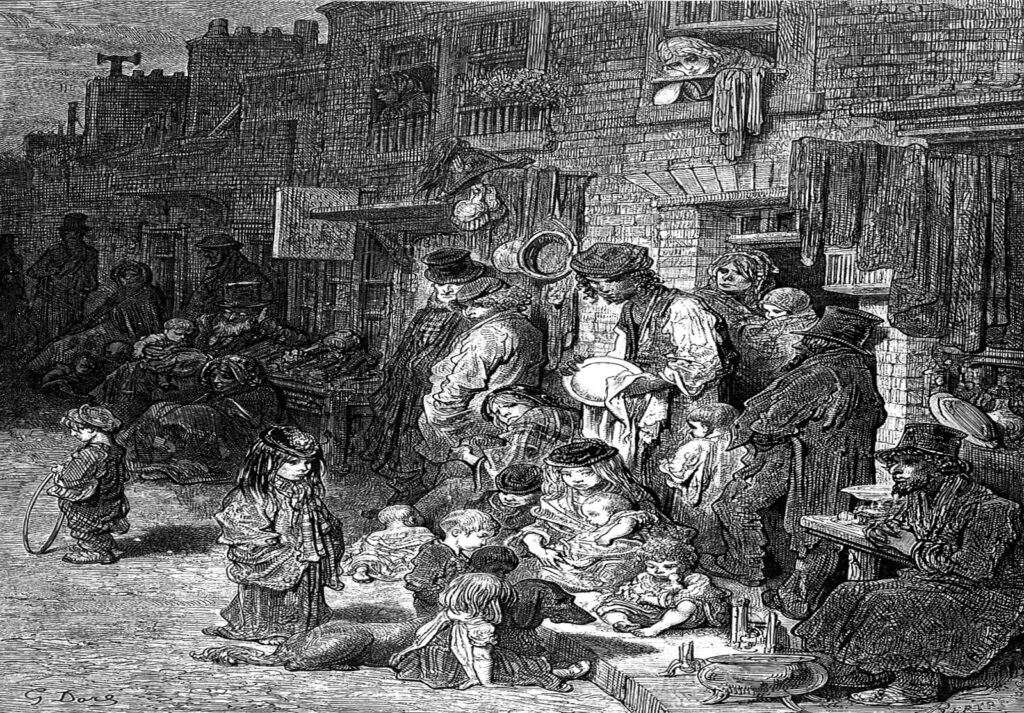Introduction
Numerous developments occurred at the turn of the 19th century. The world witnessed the effects of modern ideas after the French Revolution, and a wave of modern thought swept the globe. Science witnessed a number of inventions and an influx of contemporary ideas. Two of these cutting-edge concepts rose to the top. A liberal and a radical were ones and the same. These concepts were the result of the industrial revolution’s mechanisation of manufacturing. The liberal philosophy supported the development of property through increasing output.
Industrial Society and Social Change
With the development of the steam engine, the manufacturing process underwent a dramatic transformation, sparking the industrial revolution. The ancient feudal societies were transformed into industrial societies at the height of the industrial revolution in the early 19th century. England was the first European nation to transition into an industrial civilization, and it was here that the first industries were established.
It was a period of building new industries, new cities, and enlarged railroads. It caused a movement from the countryside to the metropolis in pursuit of factory labour, bringing both men and women to the workplace. The unemployment rate rose as the number of workers rose. Long working hours and low pay made it difficult to improve living circumstances. Cities’ housing and sewage issues worsened, and slums began to develop. Instead, because they could now turn their labour into wealth, the workers saw the industrial revolution as a chance to improve their social status.

Coming of Socialism in Europe
The social dynamic shifted as industrial societies emerged in Europe. Villagers abandoned farmland and moved to cities in quest of employment. By the middle of the nineteenth century, socialism had spread throughout Europe. Even though they were creating jobs for people and amassing property for their own use rather than for the benefit of others, socialists were opposed to private ownership.
Socialists supported local government control over the land. Varied socialists held different opinions; some believed that socialism could be attained by individual effort. The earliest socialists aimed to establish collective production and create a cooperative society; thinkers like Robert Owen and William Morris were among them. Others thought that creating cooperatives fell under the purview of the government.
Following the arrival of Karl Marx, socialism underwent significant growth. He was a German sociologist who immigrated to Britain and rose to prominence as a socialist. He asserted that large manufacturers and private property owners control the current industrial society. He referred to that class as the “capitalist” class and asserted that these powerful capitalists exploit their employees. He referred to contemporary industrial civilization as a capitalist one. It was communism that Marx ultimately wanted to see in society. Marx urged the working class to seize control of the state until communism was achieved because of this.
What is Socialism?
The idea of socialism gained popularity in the 19th century, although its roots may be seen in the writings of classical philosophers like Plato, who discussed a communal society in his work “Republic.” A theory that favours collective ownership above private ownership is known as socialism. In socialism, the society as a whole has authority over the property for the benefit of all of its members. It is not individualistic; instead, it views the community as a whole and emphasises communal goods.
The idea of socialism as an ideology was never fully explored by earlier thinkers like Saint Simon and Robert Owen, who instead focused on collective community. It wasn’t until Karl Marx and his work the critique of political economy that socialism emerged as the dominant ideology.
Marx’s central thesis is that there will inevitably be a class war between the capitalist class and the working class, which will lead to a revolution. One significant way that socialism differs from capitalism is that it emphasises economic equality together with social and political equality.
Spread of Socialism
Marx was crucial in making socialism more widely accepted. In 1864, he created the First International or International Working Men’s Association. It was a group of labour leaders who weren’t fully dedicated to socialism or revolution. This demonstrates Marx’s determination to spread the concept of socialism. The socialist movement had spread throughout Europe by the 1870s. The First International was continued as the Second International on July 14, 1889, due to its success. It was an alliance of socialist and labour parties that carried on the first international mission.
Workers began forming worker unions and cooperatives throughout Europe, particularly in nations like England, Germany, France, and Italy. They formed groups and began organising to fight for their rights, better living and working circumstances, and pay that was fair. The labour union and other labour organisations in England were combined to become the labour party in 1905. The social democratic party took power in Germany. In 1905, the French Socialist Party was also established. The goal of all the numerous types of socialism that emerged over time was to put an end to the class struggle.
Summary
The philosophy of socialism first appeared in Europe in the 19th century. It was brought on by the negative consequences and declining living conditions of industrial workers. According to socialism, a state is a tool for the exploitation of the working class. The concept of class conflict is central to socialism. It asserts that the stronger class has always been taken advantage of by the dominant class. The worker class is taken advantage of by capitalists in today’s capitalist society.
FAQs
1.What is the difference between Socialism and Capitalism?
Ans. According to capitalism, a person is free to amass as much wealth as he likes, and it would be under his control. Capitalism gives primacy to the right to property. Socialism rejects the idea of concentrating wealth in the hands of a small number of people and is opposed to private ownership. Socialism gives the group a higher priority than the individual.
2.What type of Government did the Socialists Support?
Ans. To socialists, the government should assist in the creation of cooperatives and fight to improve a lot of the working class, according to socialists. Socialists favour public management of the available resources.
3.Explain Fabian Socialism.
Ans. This particular brand of socialism emerged in Britain. Instead of discussing the revolution to bring about socialism, it focuses on political parties and seeks to gain power through their sway.
 Mission Statement
Mission Statement
“Empower every student to achieve full potential”
88Guru has been established with the social objective of making quality video-based learning material available to all Indian students. Technology, Connectivity and Social Media are rapidly changing the world of Education and we wish to lead the transformation of the tuition industry in India.
88Guru is the perfect complement to the current tuition model. 88Guru creates a wonderful opportunity for children and parents to bond while engaging in a valuable learning activity. It also provides the complete curriculum at your fingertips for those moments when you need some help at short notice. We believe that this mode of tuition could be transformational, adding hours to a child's day while providing complete control over the learning process.
Every course is taught by the best teachers from India's top schools and conducted in an engaging manner to keep students involved. The e-learning process consists of video-based instructions, computer-graded assignments, and a dashboard which allows the student and parent to track progress.


